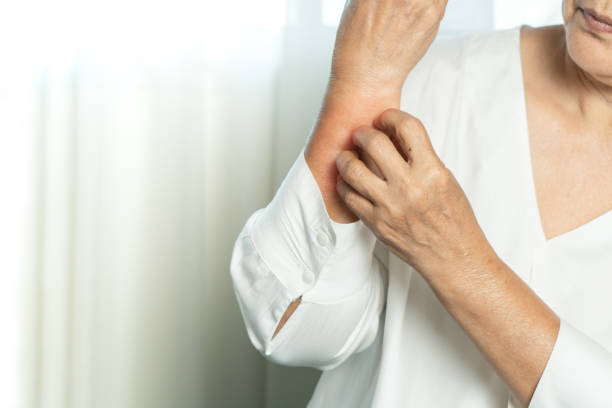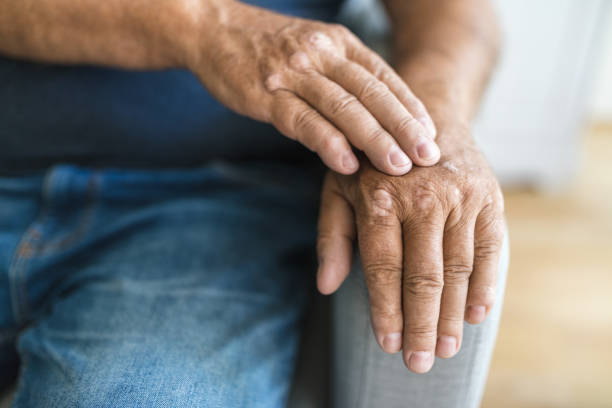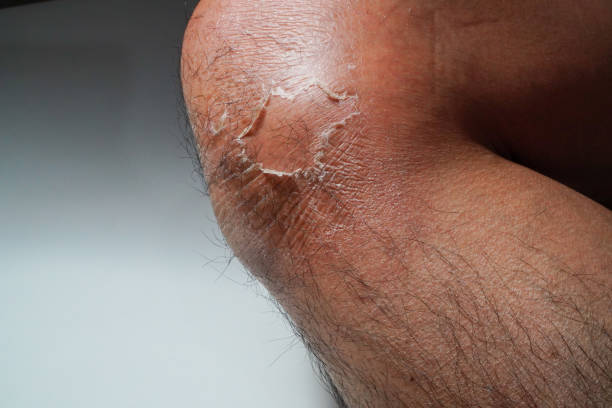Skin Care
Natural Treatments for Dry Itchy Skin in the Elderly
Are you or a loved one experiencing dry, itchy skin? If so, you are not alone. Dry, itchy skin is a frequent problem, particularly in the elderly. The aging process can cause skin to lose moisture, resulting in painful feelings. Fortunately, there are natural remedies available to help ease the irritation and restore moisture to the skin.
Understanding Dry, Itchy Skin in the Elderly
Dry, itchy skin, commonly known as xerosis, is a common ailment that can afflict people of any age. However, it is especially common among the elderly. As we age, our skin gradually thins and loses its capacity to absorb moisture. This might cause dryness, irritation, and a dull complexion.
Several factors lead to dry, itchy skin among the seniors. First, a decrease in sebum production, the skin’s natural oil, can cause moisture loss. Furthermore, the skin’s ability to retain water decreases with age, worsening the problem. Environmental factors such as low humidity and exposure to harsh weather conditions can also cause dryness and itching.

Common Causes of Dry, Itchy Skin in the Elderly
Understanding the underlying causes of dry, itchy skin in the elderly is critical for successful treatment. Some common culprits are:
- Age-related changes: As mentioned earlier, the aging process itself plays a significant role in dry, itchy skin. The natural decline in sebum production and the skin’s ability to retain moisture can lead to dryness and itching.
- Dehydration: The elderly often have a reduced sensation of thirst, leading to inadequate hydration. Dehydration can further exacerbate dry skin symptoms.
- Harsh soaps and detergents: Many commercially available soaps and detergents contain harsh chemicals that strip the skin of its natural oils, leading to dryness and irritation.
- Hot showers and baths: While a warm shower can be comforting, hot water can actually worsen dry skin by stripping away the skin’s natural oils.
- Medical conditions: Certain medical conditions, such as eczema, psoriasis, and hypothyroidism, can contribute to dry, itchy skin in the elderly.
The Importance of Natural Treatments for the Elderly
Natural therapies can be quite successful for treating dry, itchy skin in the elderly. Unlike harsh chemical-based remedies, natural therapies are gentler on the skin, lowering the chance of future irritation. Furthermore, many natural therapies offer moisturizing and calming characteristics, which relieve itching and promote skin health.
Natural therapies can also provide a better long-term cure for dry, itchy skin. By focusing on naturally nourishing and moisturizing the skin, you can address the underlying problems rather than just covering the symptoms.

Natural Remedies for Dry, Itchy Skin in the Elderly
- Aloe Vera: Aloe vera gel has long been known for its calming and hydrating effects. Its gel-like consistency helps to retain moisture and minimize inflammation, offering comfort for dry, itchy skin. Apply pure aloe vera gel to the affected areas and let it sit for 15-20 minutes before washing with warm water.
- Coconut Oil: Coconut oil is an effective natural cure for dry, itchy skin. Its high fat content moisturizes and nourishes the skin, while its antibacterial characteristics help prevent infections. Gently massage a tiny amount of coconut oil into your skin until completely absorbed. For maximum results, use after bathing.
- Oatmeal Baths: Oatmeal baths are a common cure for itchy skin, particularly among the elderly. Colloidal oatmeal, or finely powdered oats, can aid to reduce inflammation and itching. Simply add one cup of colloidal oatmeal to a warm bath and soak for 15-20 minutes. Pat your skin dry gently and then apply a moisturizer.
Dietary Changes to Improve Dry, Itchy Skin in the Elderly
In addition to topical treatments, food modifications can have a substantial impact on skin health. Adequate hydration is essential for keeping skin hydrated, so make sure you or your loved one drinks lots of water throughout the day. Foods high in omega-3 fatty acids, such as fatty fish, flaxseeds, and walnuts, can also benefit skin health.
Lifestyle Changes to Alleviate Dry, Itchy Skin in the Elderly
Incorporating certain lifestyle changes can help alleviate dry, itchy skin in the elderly. Here are some tips to consider:
- Avoid hot showers and baths: Opt for lukewarm water instead of hot water when bathing or washing hands. Hot water can strip away the skin’s natural oils, exacerbating dryness.
- Use gentle, fragrance-free soaps: Choose mild, fragrance-free soaps and cleansers that are specifically formulated for dry, sensitive skin. Harsh soaps can further irritate the skin and worsen dryness.
- Moisturize regularly: Apply a moisturizer immediately after bathing or washing your hands to lock in moisture. Look for products that contain ingredients like hyaluronic acid, glycerin, and ceramides, which help to hydrate and repair the skin’s barrier.

Tips for Preventing Dry, Itchy Skin in the Elderly
Prevention is key when it comes to managing dry, itchy skin in the elderly. Here are some tips to help prevent dryness and irritation:
- Keep the air humid: Use a humidifier in your home, especially during the winter months when indoor air tends to be dry. This helps to add moisture to the air and prevent excessive drying of the skin.
- Wear protective clothing: When venturing outside, protect your skin from harsh weather conditions by wearing appropriate clothing, such as gloves, scarves, and long-sleeved shirts.
- Avoid irritants: Be mindful of irritants that can worsen dry skin symptoms. Avoid products with fragrances, dyes, and other potential irritants.
When to Seek Medical Help for Dry, Itchy Skin in the Elderly
While most cases of dry, itchy skin can be treated with natural remedies and lifestyle modifications, it is critical to understand when to seek medical attention. If your symptoms persist, worsen, or are accompanied by additional concerns, you should see a doctor. They can assist in diagnosing underlying issues and providing suitable treatment.
Other Resources and Support for Managing Dry, Itchy Skin in the Elderly
Managing dry, itchy skin in the elderly can be difficult, but there are tools and help available. Local community centers, senior centers, and healthcare institutions frequently provide educational activities and resources for elders. Furthermore, internet forums and support groups can be a great resource for people to share their experiences and seek assistance from others facing similar issues.
Conclusion
Dealing with dry, itchy skin has been quite bothersome, especially as I’ve gotten older. However, I’ve discovered that with the right natural treatments and lifestyle changes, it’s possible to alleviate the symptoms and promote healthier, more comfortable skin. Exploring options like soothing aloe vera, moisturizing with coconut oil, and indulging in oatmeal baths has made a significant difference.
I’ve learned to prioritize staying hydrated, steer clear of harsh soaps and irritants, and seek medical help when necessary. By making skin health a priority, I’ve managed to improve overall comfort and well-being, particularly in navigating the challenges of dry, itchy skin in the elderly.
Trusted Health, Wellness, and Medical advice for your well-being


